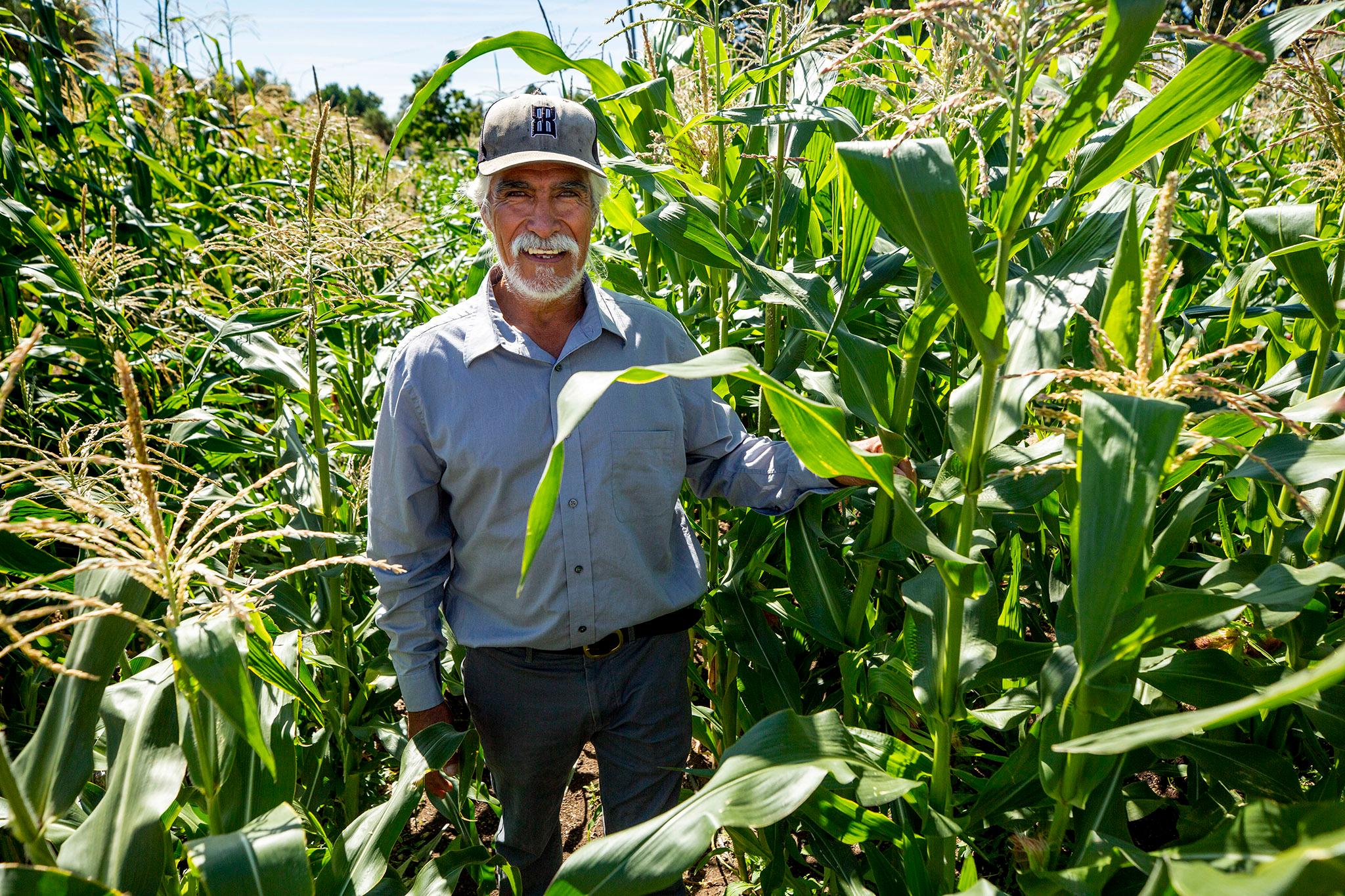On most weekends, and yes some weekdays, the sound of music and a sea of hundreds of people emerge from the collection of colorful buildings near the center of Morrison Road, helped by some prismatically painted food trucks and balanced out by a lush farm lined with bright sunflowers and filled with every pepper and squash imaginable.
It's all part of the RISE Westwood Campus owned by Re:Vision, a nonprofit organization in the Westwood neighborhood focusing on improving both food access and food security in an area that doesn't have a full-service grocer.

The organization, founded by Joseph Teipel and Eric Kornacki in 2007, started off as a backyard garden program that helped residents grow their own fresh produce just steps away from their kitchens.
Now 14 years later, executive director JoAnna Cintrón said Re:Vision is still focused on fixing the food system while also fostering leadership development and community growth.
"That's the angle Re:Vision has had in the past, bringing equity when it comes down to being able to provide food for a Latino community in a food desert," said Chef Edwin Sandoval, who launched his private cooking concept Xatrucho through Re:Vision. "The fact that Re:Vision has been able to successfully set up a farm that is harvesting a lot of produce... that's been a huge part of attacking the issue of food insecurity."
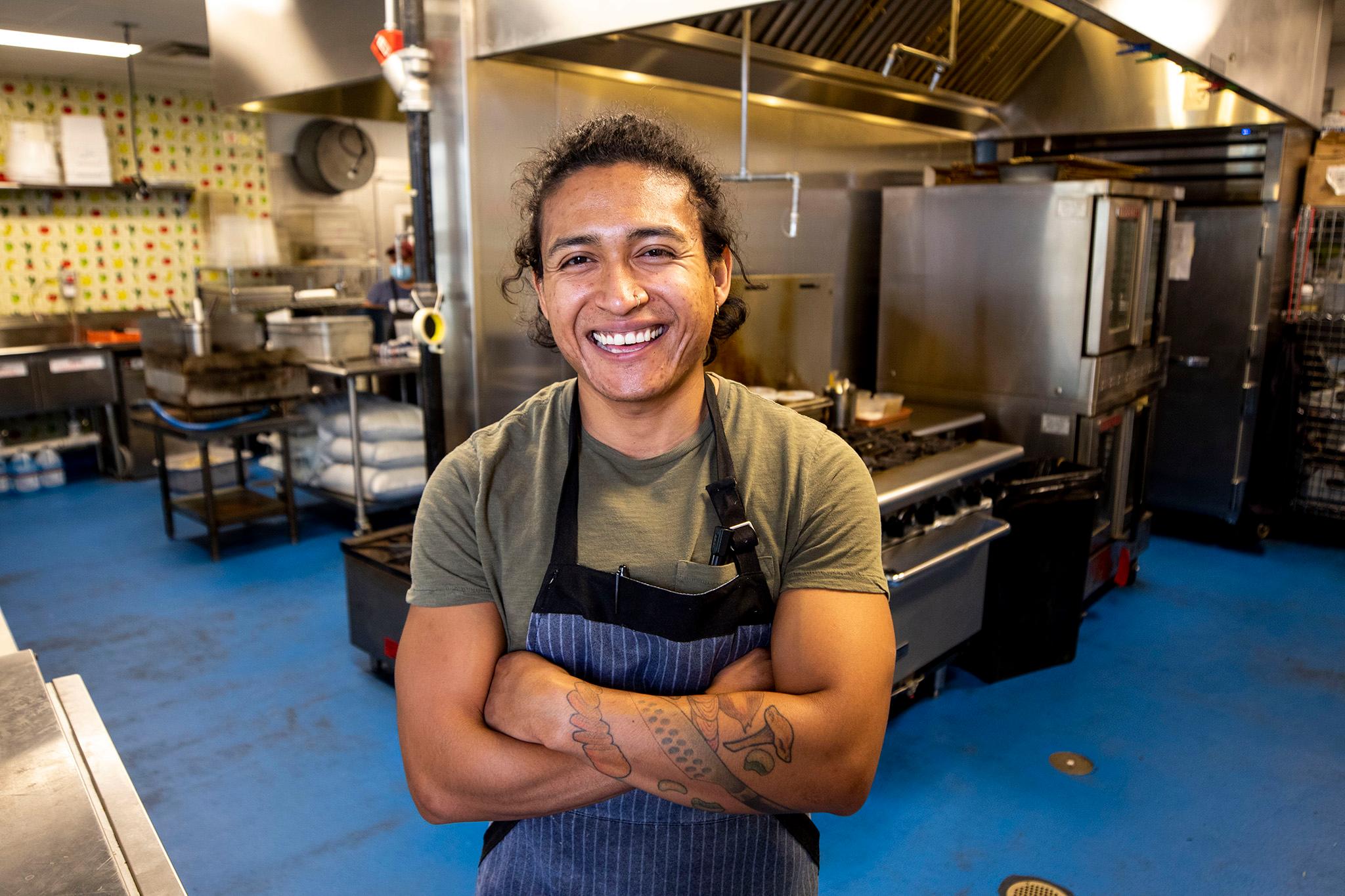
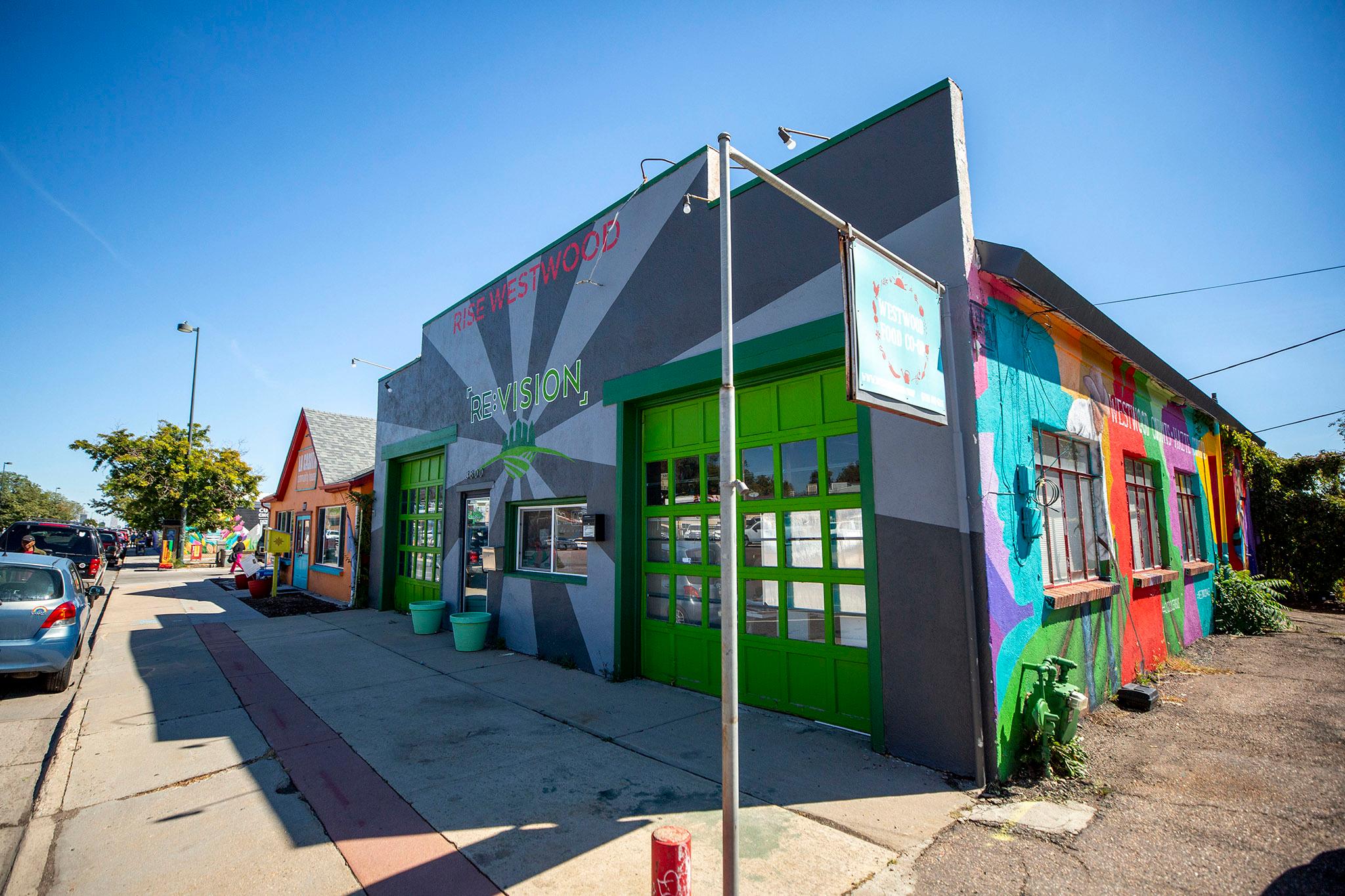
Cintrón said she believes Re:Vision's mission in Westwood began with addressing the need for access to healthier food, while staying true to the area's Latino culture. Morrison Road was chosen as the organization's headquarters so it could be "physically and emotionally centered in the community" it was meant to serve.
"The community has such a rich asset within the people that are here and the historical knowledge, the cultural knowledge that the community possesses," Cintrón said. "That's why our programs are more systematic-focused. We're always trying to address the larger picture. You can't talk about food access without talking about racial equity and at the root of it, economics plays a huge factor. Health equity, food equity, it's very much related to your economic stability."
Cintrón said Re:Vision has a three-pronged approach:
- food security and immediate food access through the farm and no-cost grocery store;
- the creation of local leaders through community navigation training;
- and community ownership and entrepreneurial development, especially around food services, through providing space for growing businesses, like Xatrucho.
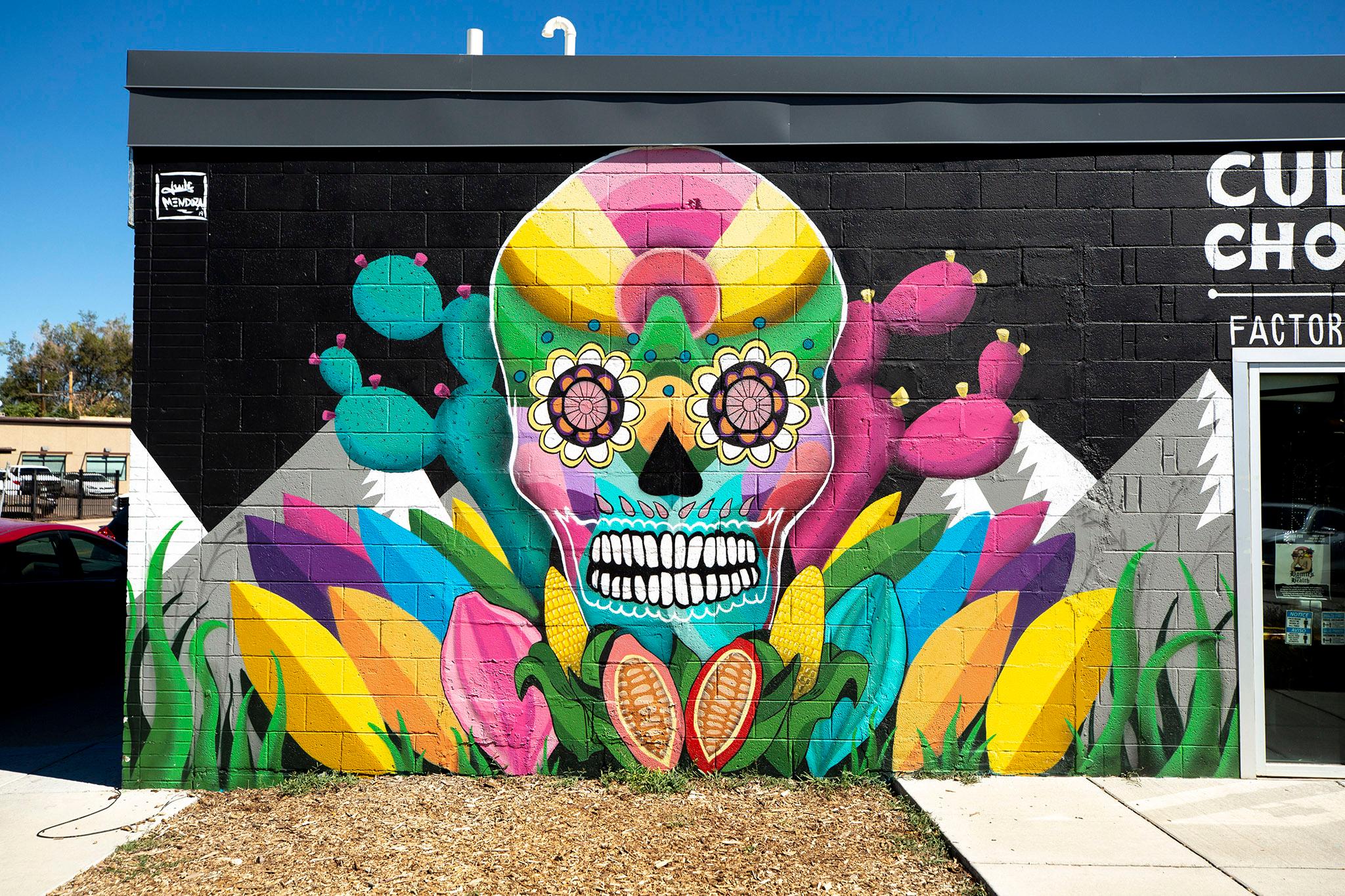
Westwood is a predominantly Latino neighborhood that is home to mostly first- and second-generation Mexican immigrants.
The average household income is about $49,000 -- around $20,000 less than Denver's average. The city describes Westwood as an "at-risk" neighborhood for displacement, but the area holds tightly to its Latino identity.
"The centralized vibe of Latin people has made Westwood a stronghold from a cultural standpoint, Sandoval said. "Everyone that has something to do with Westwood keeps that [Latino] vibe alive. When you're on Alameda and you cross over to Morrison, when you're on the strip, you feel like you're in a different place. I think that has to do with some of the organizations like Re:Vision that have been able to hold some stake in the neighborhood."
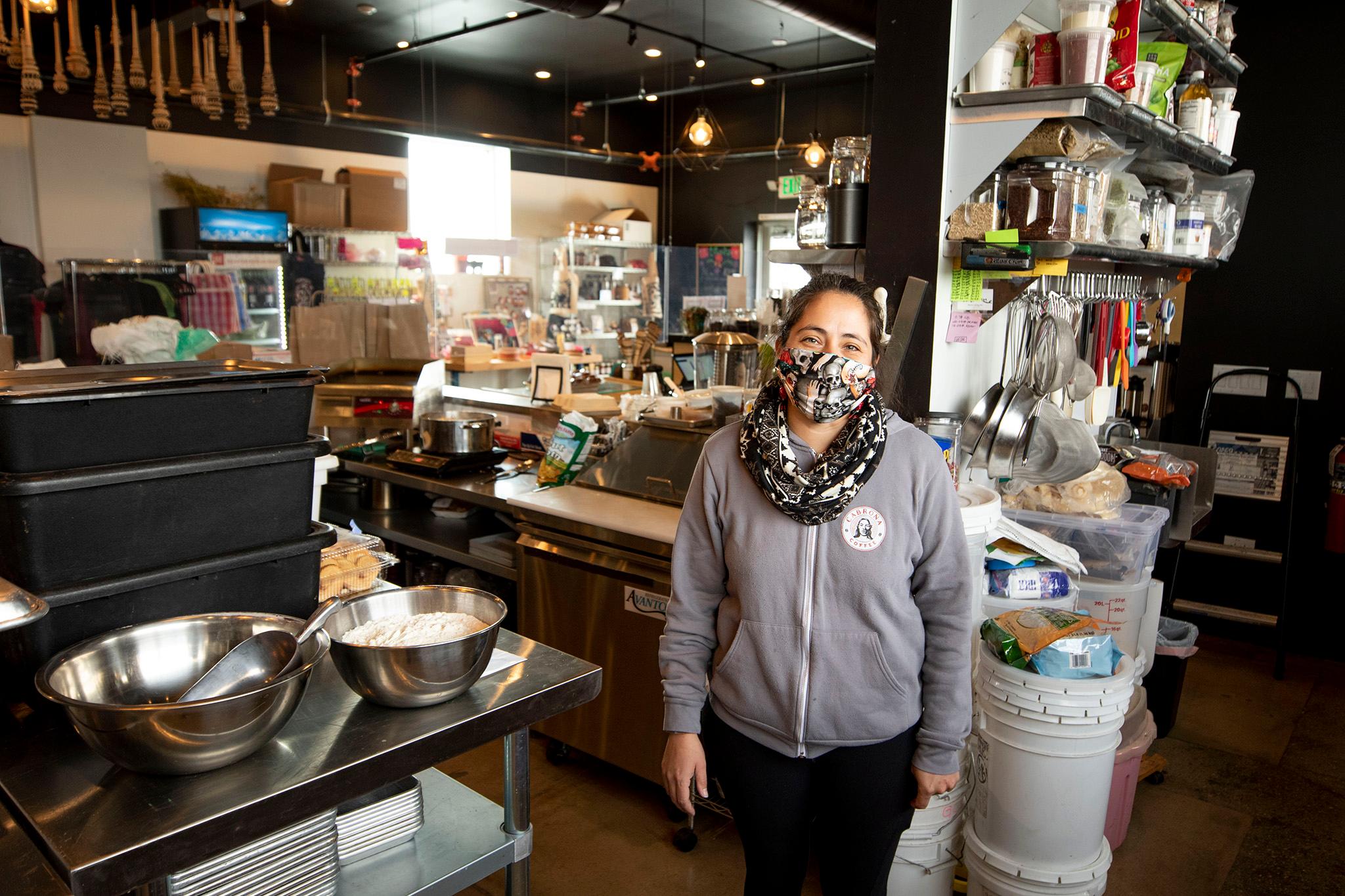
That's pretty close to what the RISE in the campus name stands for -- resilient, inclusive, sustainable economy. The campus is owned by Re:Vision and hosts the farm, several businesses and other community organizations, including La Casita Cultural Center.
While there's no easy answer in ending gentrification or displacement, Cintrón said one way is through ownership.
"One thing that's super complex about gentrification is this idea that our community doesn't want nice things," Cintrón said. "We want nice things and we want them for us, by us. If we're going to put business on the (Morrison) corridor, they should be representative of the people that live in the neighborhood and welcoming and accessible to the people in the neighborhood."
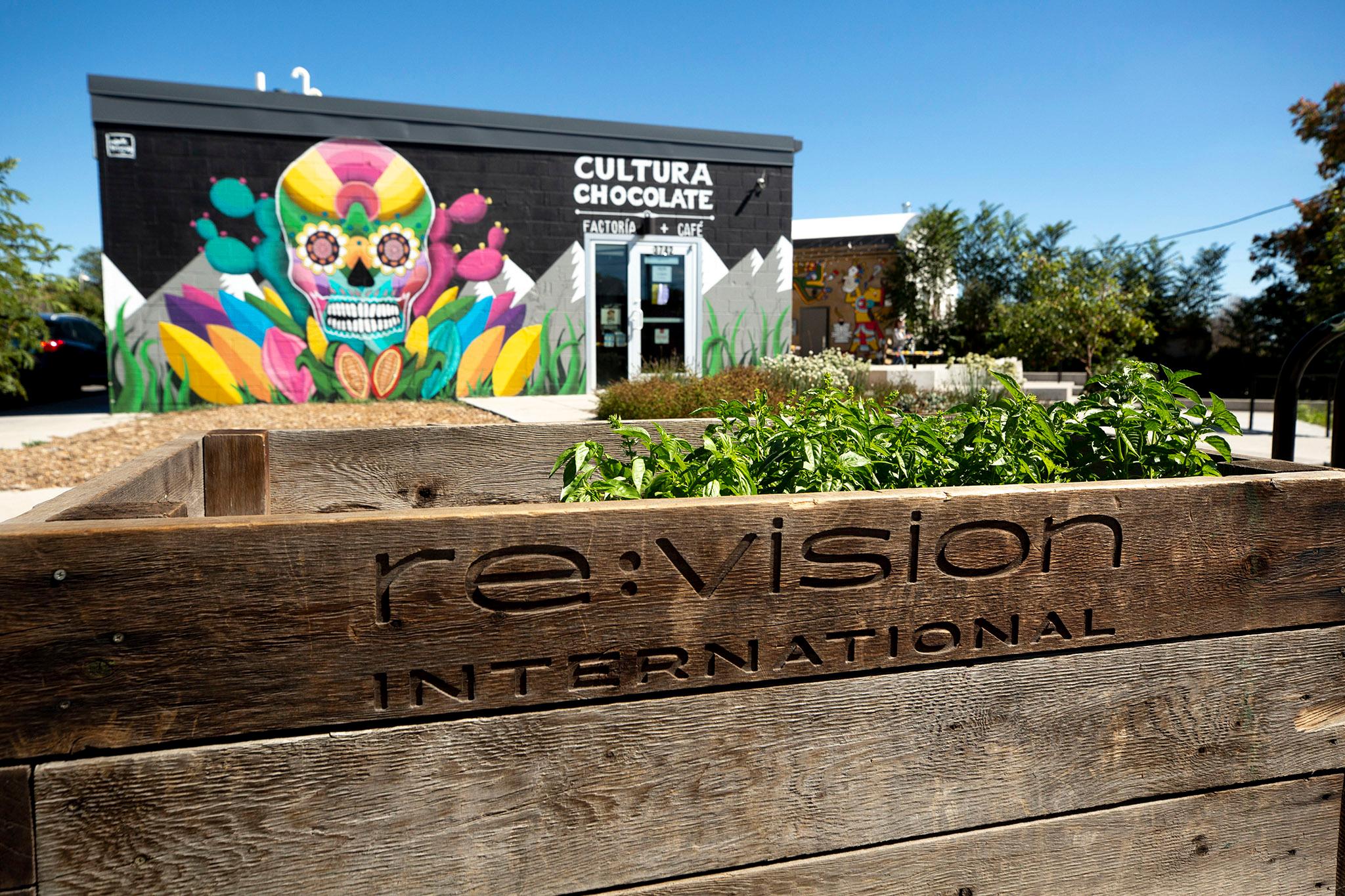
Another example of a business that started in the campus, and still remains, is Cultura Chocolate, a chocolate shop run by Damaris Ronkanen. Cintrón said Cultura is a tenant of the campus, "owned by a Latina, with a Latino focus."
Cultura itself also hosts other smaller businesses, including Cabrona Coffee and Hecho en Westwood, formerly the RISE Westwood Collective, which Ronkanen also runs. Hecho en Westwood partners with Re:Vision on occasion and is a resource for food-based businesses in the area. The collective hosts community events, like the first annual Mikailhuitl Festival, the traditional Day of the Dead celebration, which began on Sept. 18 and will end with a feast on Sept. 25.
State Rep. Serena Gonzales-Gutierrez represents Colorado House District 4, which covers a portion of Westwood. She said the campus and the organizations are providing a space where young entrepreneurs can get some exposure -- and some money. She mentioned Diana Rivero, a westside resident who sells her pastries, Just Indulge, out of Cultura.
"She's a longtime community member and to see her be able to step out and be an entrepreneur in that way, shows the community there is opportunity," Gonzales-Gutierrez said.
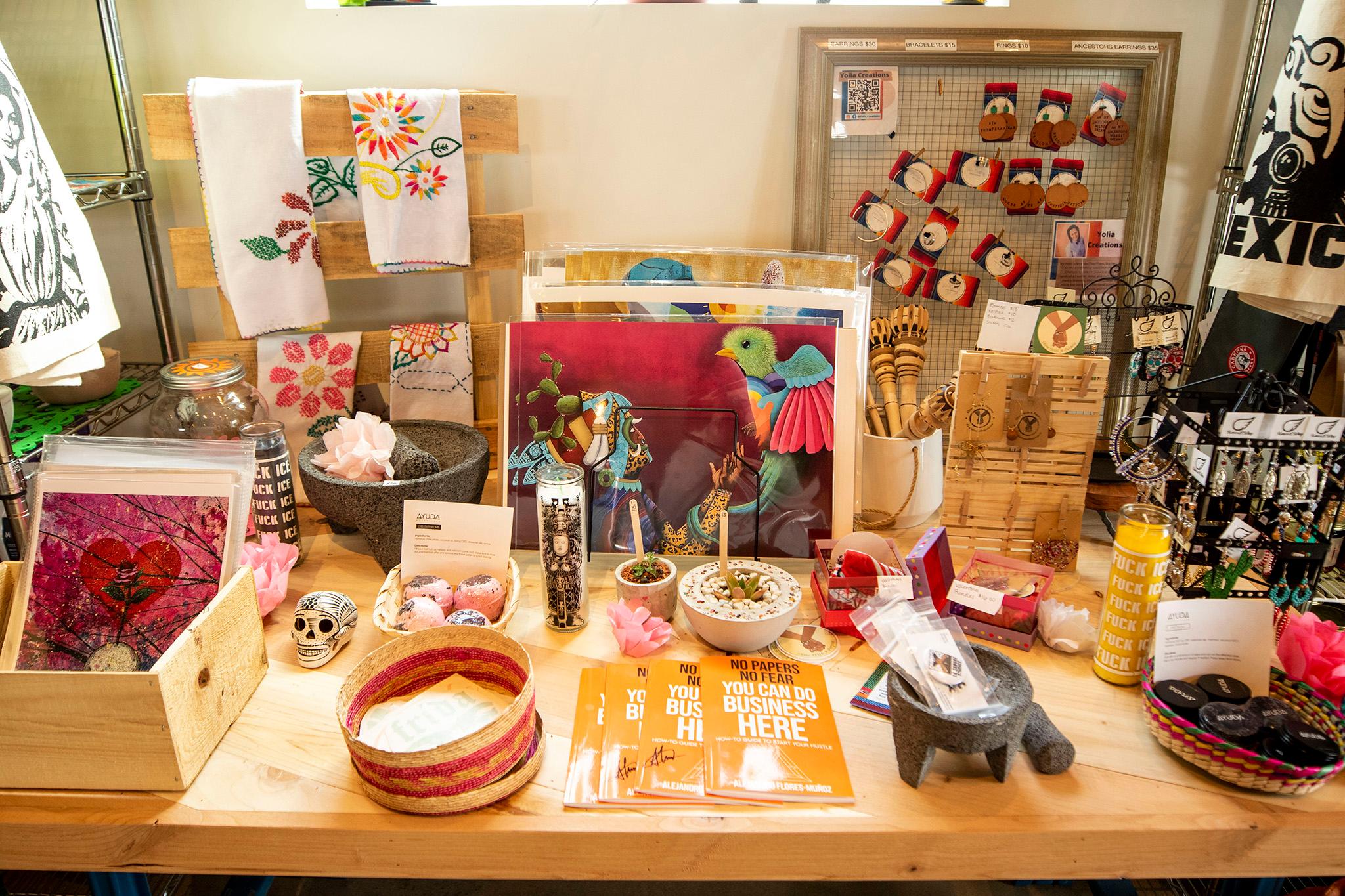
Sandoval added, "It's nice to have an organization say hey look, we have the property. We have the tools to potentially take your business to the next level. When I came into the space, that's where I was. I wanted to grow my business and make it more legitimate."
Beside entrepreneurial development, Re:Vision helps certify promotoras.
Promotoras are trained health educators and community navigators. Cintrón said the promotoras are neighborhood leaders who help residents build their backyard gardens, teach technical skills and create bonds with residents who trust them to relay world news.
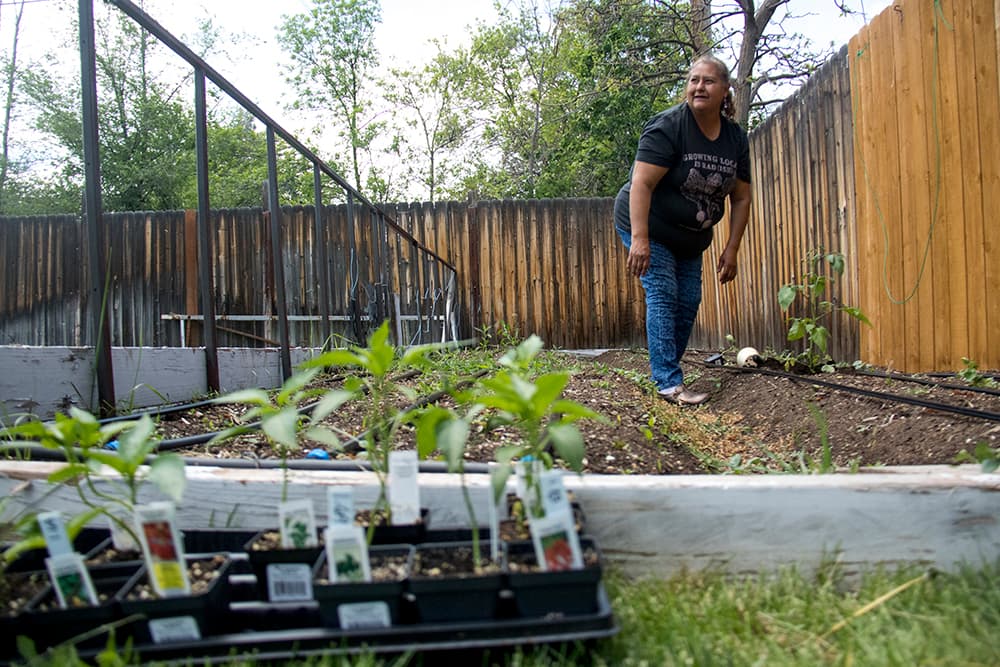
Cintrón said recently the promotoras have helped residents with their COVID-19 needs, whether it's testing, vaccine information or financial assistance programs.
"The best way to build trust is to have people from the neighborhood doing the work," Cintrón said. "So, the promotoras are the ones who can understand, translate and connect folks with resources."
Gonzales-Gutierrez added, "[The promotoras] are trusted community members, as opposed to somebody else coming in from the outside. It's actually people from the neighborhood and I think that promotes keeping the culture alive."
Cintrón said there are currently six Latina promotoras and two Latina program directors, who were once part of the backyard garden program, which essentially started Re:Vision.
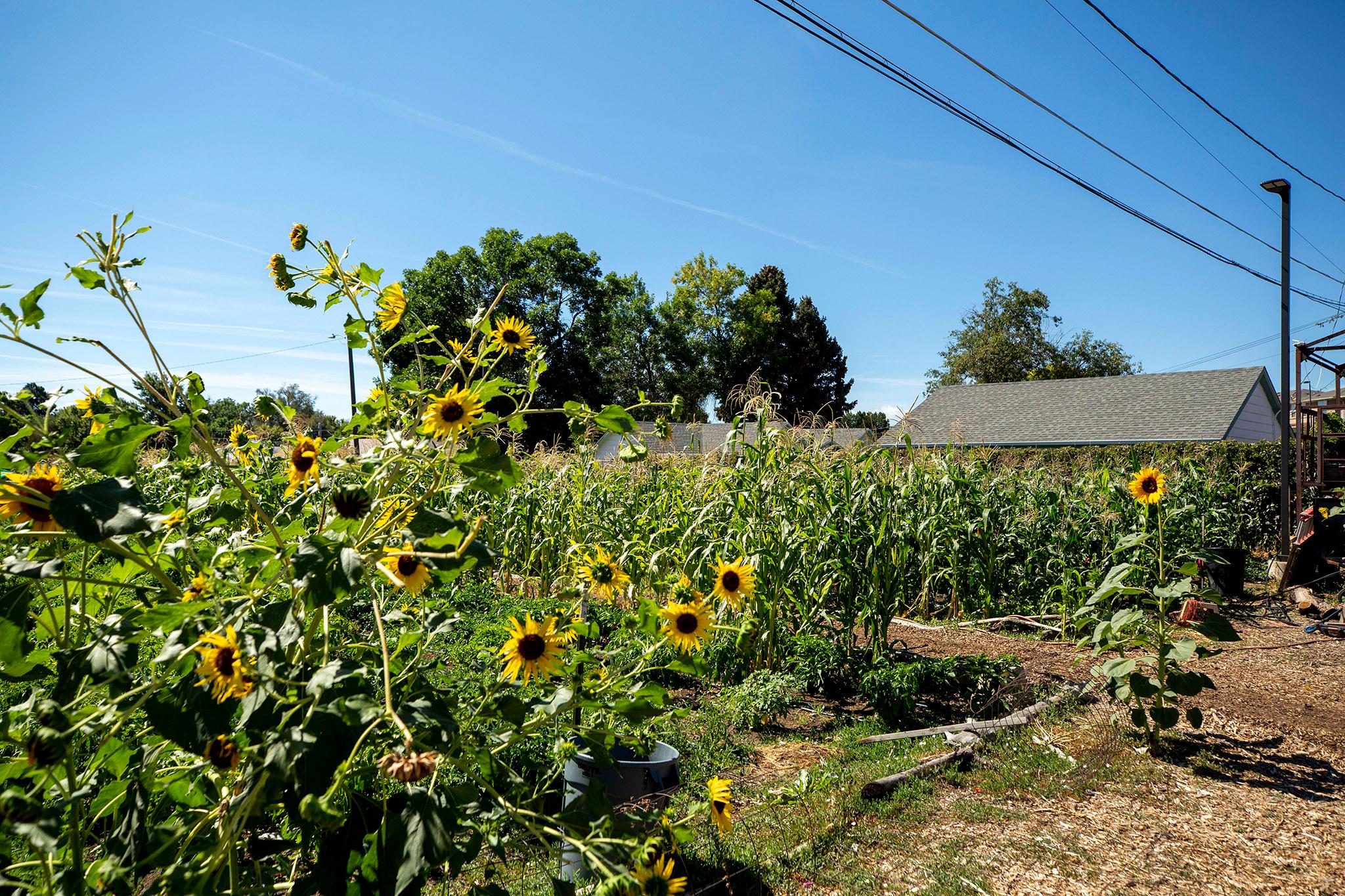
Prior to the colorful campus where Re:Vision is now, there used to be a junkyard. Kornacki said people thought he was crazy when he suggested building a farm on top of the junkyard but Westwood has seen its fair share of farms.
According to Shift Research Lab, Westwood used to be rolling prairie land.
Anthony Meluso is an EcoFlora Outreach Coordinator for the Denver Botanic Gardens. In a thesis he wrote for the University of Colorado at Boulder titled Reinvention: A Spatial History of Westwood, he said Westwood was a predominantly an agricultural land, ripe for development in the late 1930s.
David de Santiago runs the farm on the campus and you can often see him standing in the field with a smile on his face, like a kid in a candy shop. Cintrón said he's always mixing it up with new vegetable cross breeds.
In Spanish, de Santiago enthusiastically said that the beginning of the season this year was rough because it was cool, then extremely hot, but magic was still happening in the soil. There's green beans, carrots and he's working on growing glass corn.
"We're honoring the agricultural roots of the neighborhood itself," Cintrón said. "We're doing it with a very Latino focus which is representative of the majority of the population. From the food that we grow, to the food that we cook, to the food that we sell, it is very Latino-forward."
Cintrón said over 150 community gardens have been planted in Westwood and about 10 champion gardens at various churches.
"Re:Vision's bringing back... our connection to the land," Gonzales-Gutierrez. "Seeing the gardens... especially in a neighborhood where there's a scarcity of places to get food, the whole urban farm thing is community oriented and culturally, our people have been doing this for generations."
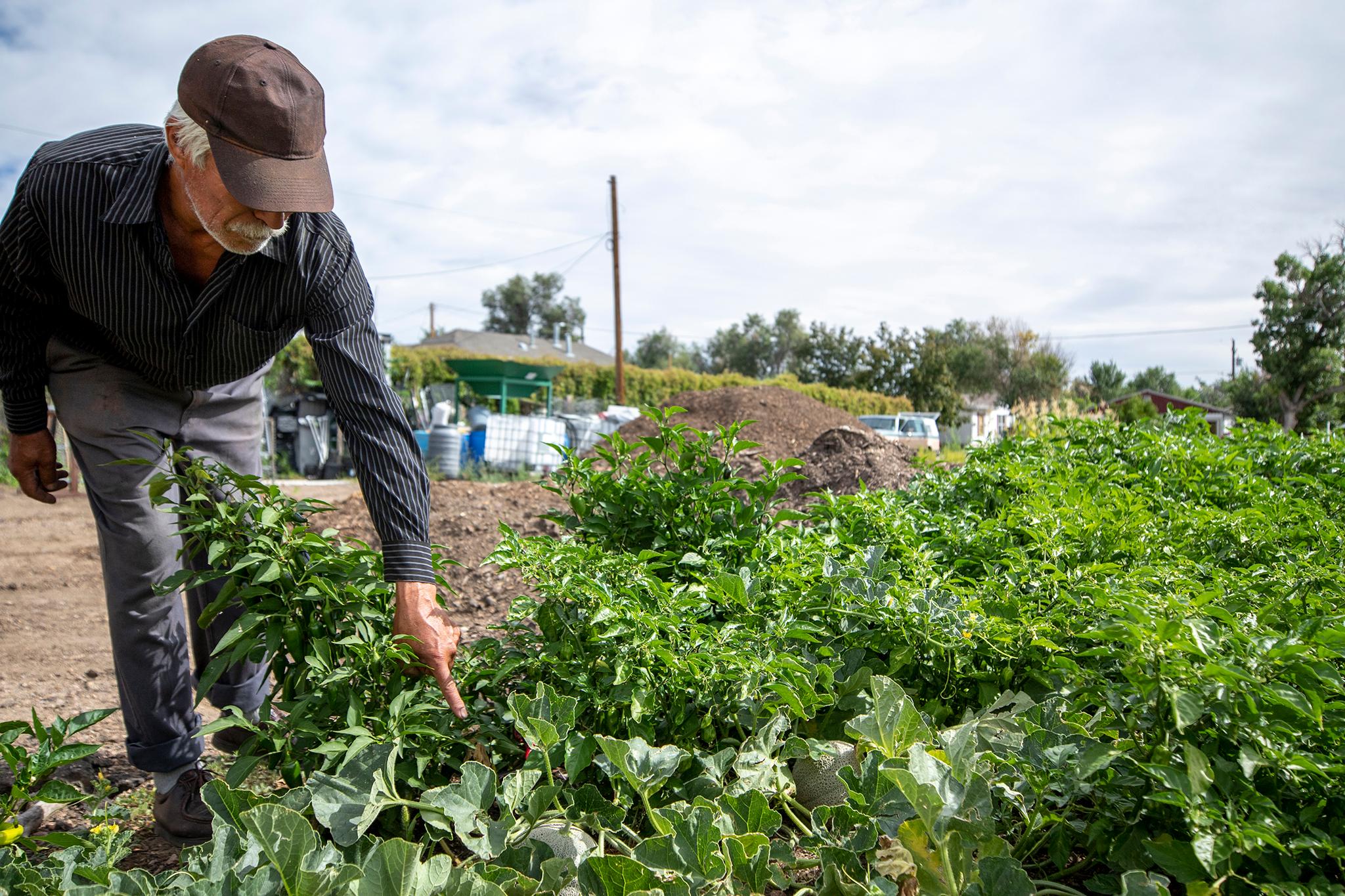
Besides the farm, Re:Vision also started the Westwood Food Cooperative, a co-op aimed at building community wealth while providing a much-needed grocery store to the area. On Morrison Road, there are panaderias and carnicerias, but the closest full-service grocery store to the RISE Campus is a King Soopers on South Sheridan Boulevard and West Florida Avenue -- a 30-minute walk.
The co-op has been closed since the start of the pandemic and its future is unclear. But co-op members and Re:Vision are currently working on what the next step will be.
With the closure of the co-op and the financial difficulties the pandemic has brought to the area, Re:Vision started a no-cost grocery program that provides from 400 to 450 families with free food and other goods on Tuesdays and Wednesdays. Cintrón said each family, on average, consists of about four to five people.
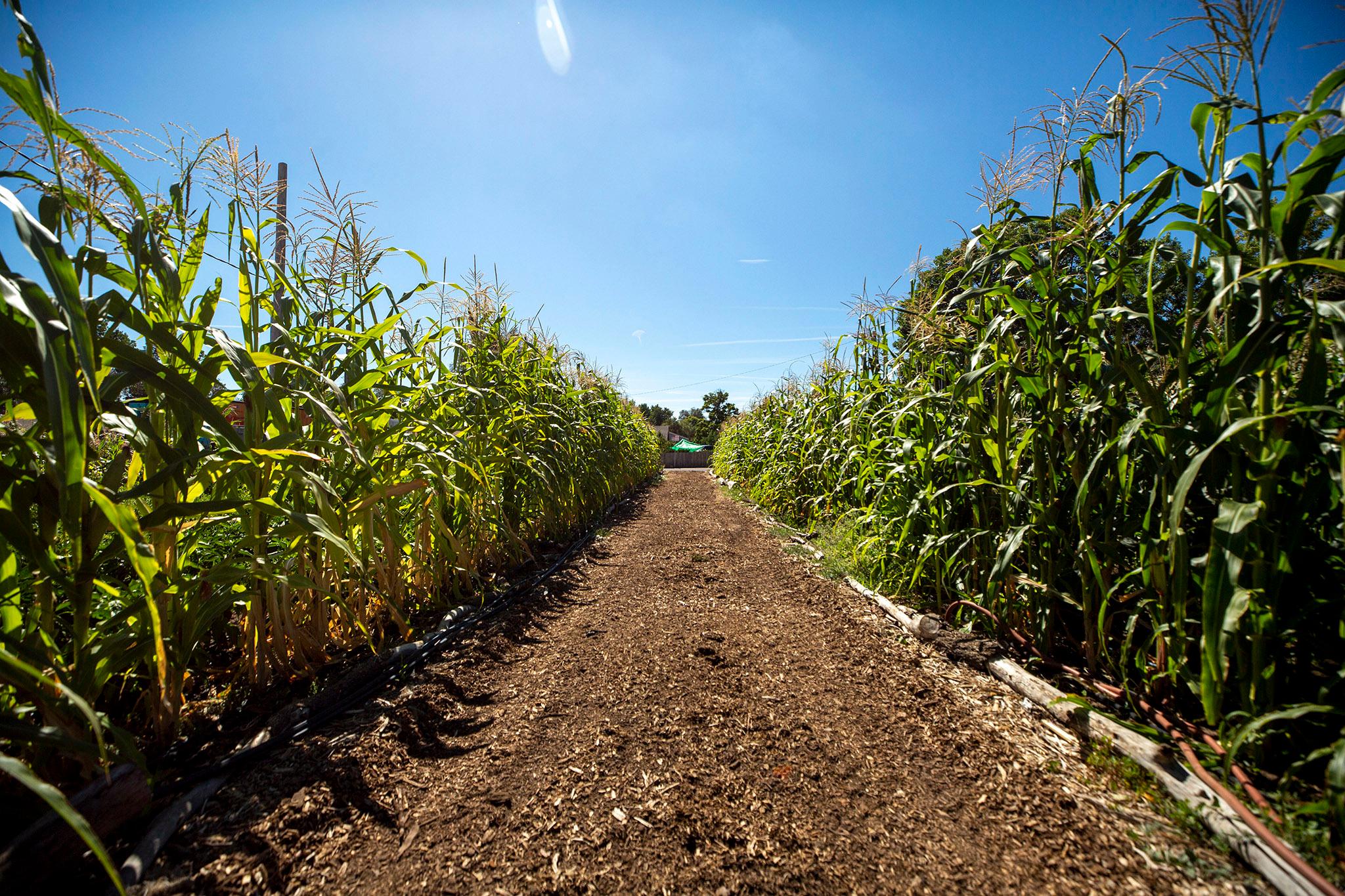
Cintrón said the program isn't a solution and that larger questions need to be asked about why rents are so high and salaries are so low for the families that benefit from the program.
"It's really an immediate service and immediate assistance, but it's kind of a band-aid," Cintrón said. "It doesn't address systemic change."
Cintrón added again that Re:Vision's goals have always been based on systemic change in food accessibility.
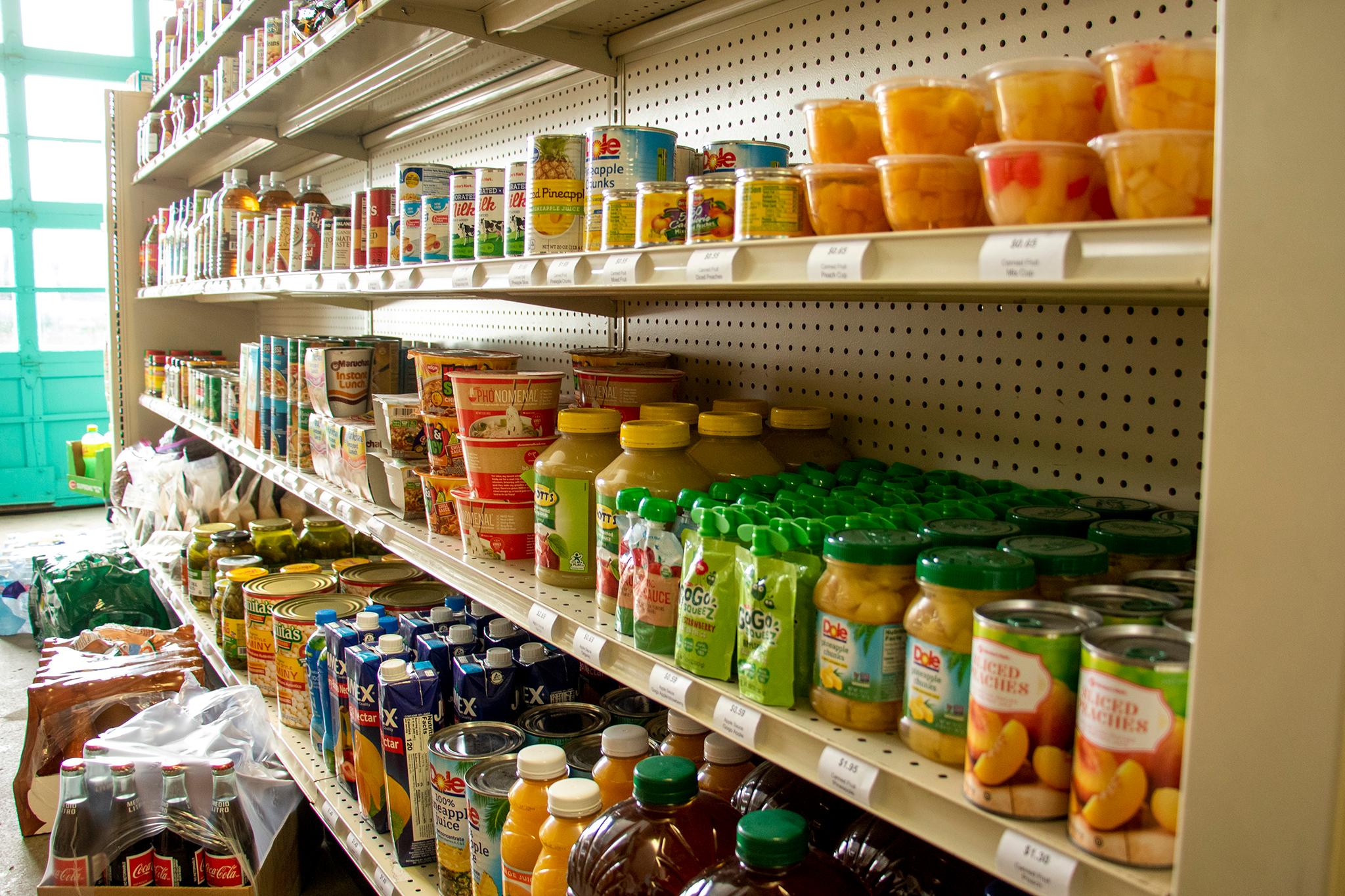
When will Westwood have a grocer that provides fresh produce while also meeting cultural needs? Cintrón doesn't know.
The solution could already be there though, Cintrón said. Helping the local panderias and carnicerias get bigger vendors for more food options and fresher produce would go a long way.
Gonzales-Gutierrez said that idea would also promote community ownership.
"If you want to build generational wealth, does it solve anything to bring a big corporate entity that doesn't treat their employees appropriately or pay them well enough to that area?" Gonzales-Gutierrez asked rhetorically. "Do we want to bring that into the community and further perpetuate that cycle, rather than building up generational wealth, entrepreneurship and small businesses?"
Either way, Cintrón added, if residents need free food for now, Re:Vision will provide it.
"We can always do better," Cintrón said. "There's always a need, so we can always listen better and create real-time solutions."
Cintrón took over as executive director in 2019 and, since then, she's dealt mostly with the pandemic's effects on the community. But when the pandemic cools and the economy revs back up again, Cintrón said she's looking forward to helping the area "take full advantage of the economic recovery."
She also wants to put the commercial commissary kitchen in Cultura to work.
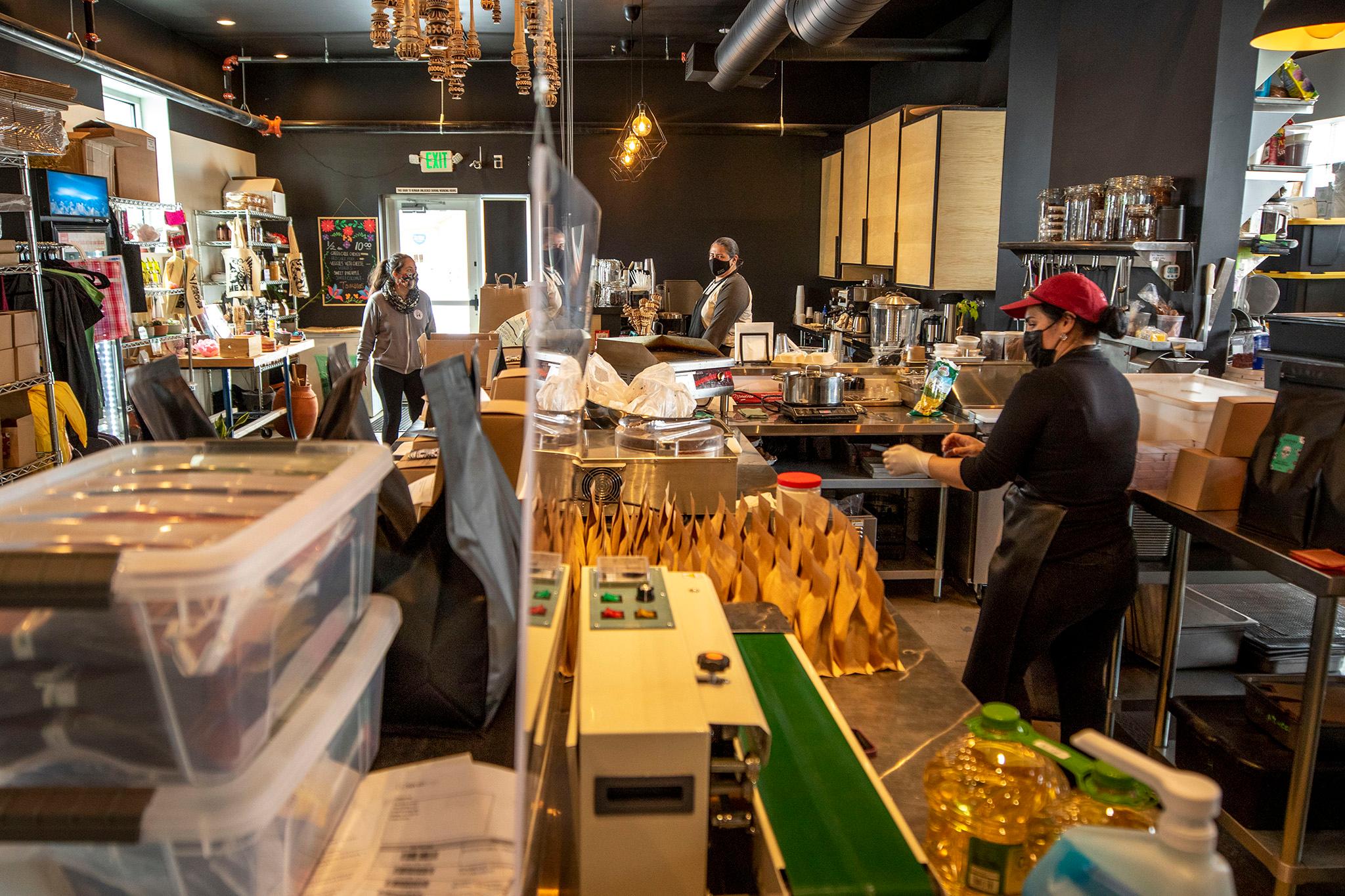
"I was watching 'The Chef Show' on Netflix and they did a whole episode on cochinita and Yucatán-style food with two white lady chefs and I thought, 'Why are we still uplifting these stories on non-Latino-Latinx people making our food," Cintrón laughed. "It's ambitious, but I want us to be at the forefront of these stories and these brands... I want us to reclaim our space."
The no-cost grocery store is open Tuesday from 12 p.m. to 8 p.m. and Wednesday from 10 a.m. to 6 p.m. There's also a farmer's market every Sunday from 9 a.m. to 2 p.m., where "you'll get Latino food, prepared by Latinos," Cintrón said.
She added that the farm produced loads of tomatoes this year. So who knows, maybe an Iron Chef tomatoes competition could be coming to the commissary kitchens, Westwood-style.

